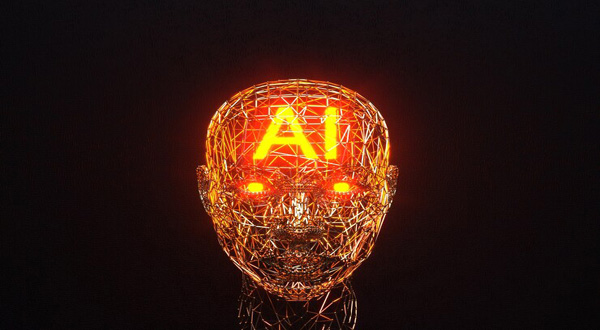Understanding Artificial Intelligence in Computers: A Guide for Everyone
- Update Time : Friday, March 1, 2024
- 28 Time View

Understanding Artificial Intelligence in Computers: A Guide for Everyone: Artificial Intelligence (AI) is a term we often hear thrown around, but what exactly does it mean in the realm of computers? Let’s dive into this fascinating world together and uncover the mysteries behind AI in simple, everyday language.
Unveiling the Basics: What is Artificial Intelligence?
Artificial Intelligence, often abbreviated as AI, refers to the simulation of human intelligence processes by computer systems. These processes include learning, reasoning, problem-solving, perception, and language understanding. In simpler terms, AI enables computers to perform tasks that typically require human intelligence.
How Does AI Work?
Machine Learning: Imagine teaching a child to ride a bike. Initially, you guide them, but over time, they learn to balance on their own. Similarly, machine learning is a subset of AI where computers learn from data without explicit programming. They improve their performance on a task as they receive more data.
Deep Learning: Picture a brain composed of interconnected neurons. Deep learning mimics this structure by using artificial neural networks to process data. These networks analyze patterns in large datasets, enabling computers to recognize images, understand speech, and even translate languages.
Real-world Applications of AI
Virtual Assistants: Have you interacted with Siri, Alexa, or Google Assistant? These are virtual assistants powered by AI, capable of understanding natural language and performing tasks like setting reminders, answering questions, and controlling smart home devices.
Autonomous Vehicles: Ever wondered how self-driving cars navigate roads? AI plays a crucial role through machine learning algorithms that enable these vehicles to perceive their surroundings, make decisions, and navigate safely.
Healthcare: AI is revolutionizing healthcare by assisting in diagnosis, drug discovery, and personalized treatment plans. It can analyze medical data, identify patterns, and provide insights that aid healthcare professionals in making informed decisions.
Read More: Unveiling the World of Artificial Intelligence: Exploring Various Types
The Impact of AI on Society
Job Automation: With advancements in AI and robotics, certain repetitive tasks in various industries are being automated. While this streamlines processes, it also raises concerns about job displacement and the need for upskilling in the workforce.
Ethical Considerations: As AI becomes more sophisticated, questions arise regarding ethics and privacy. Issues such as algorithm bias, data privacy, and autonomous decision-making raise important ethical dilemmas that require careful consideration.
Understanding AI: Myth vs. Reality
Myth: AI will surpass human intelligence and take over the world.
Reality: While AI has made significant advancements, it’s important to remember that it’s a tool created by humans. Its capabilities are limited to what it’s programmed to do and are far from achieving human-like consciousness.
Myth: AI is only for tech-savvy individuals or large corporations.
Reality: AI is becoming increasingly accessible to individuals and businesses of all sizes. With the rise of AI platforms and tools, even those with limited technical knowledge can leverage AI for various purposes.
The Future of AI: What Lies Ahead?
AI-Powered Assistants: Expect to see more AI-powered assistants integrated into everyday devices, simplifying tasks and enhancing convenience.
AI in Education: AI will continue to transform education through personalized learning, adaptive tutoring systems, and educational content creation.
AI in Healthcare: Advancements in AI will lead to precision medicine, where treatments are tailored to individual patients based on their genetic makeup and medical history.
Conclusion
Artificial Intelligence in computers is a rapidly evolving field with vast potential to transform various aspects of our lives. While there are challenges and ethical considerations to navigate, the benefits of AI in healthcare, transportation, education, and beyond are undeniable. Embracing AI responsibly and ethically will pave the way for a future where technology serves humanity’s best interests.
Table of Contents
| Sr | Headings |
| — | ——————————————– |
| 1. | Unveiling the Basics: What is Artificial Intelligence? |
| 2. | How Does AI Work? |
| 3. | Real-world Applications of AI |
| 4. | The Impact of AI on Society |
| 5. | Understanding AI: Myth vs. Reality |
| 6. | The Future of AI: What Lies Ahead? |
Read More: The Advantages of Artificial Intelligence: Enhancing Our Lives
Frequently Asked Questions (FAQs)
- What are the potential risks of AI?
AI poses risks such as job displacement, algorithm bias, and privacy concerns. It’s crucial to address these issues through ethical guidelines and regulations.
- Can AI replace human intelligence?
While AI can perform specific tasks with high efficiency, it lacks human-like consciousness and creativity. Human intelligence encompasses emotional understanding and complex decision-making, which AI cannot replicate.
- How can individuals benefit from AI?
Individuals can benefit from AI through personalized recommendations, improved healthcare services, and increased efficiency in various tasks, from managing finances to optimizing daily routines.
- Is AI accessible to everyone?
Yes, AI is becoming increasingly accessible through user-friendly platforms and tools. From virtual assistants to educational resources, individuals can leverage AI to enhance productivity and convenience in their daily lives.
- What ethical considerations are associated with AI?
Ethical considerations include algorithm bias, data privacy, autonomous decision-making, and the potential impact of AI on societal norms. Addressing these concerns requires collaboration between policymakers, technologists, and ethicists to ensure responsible AI development and deployment.












